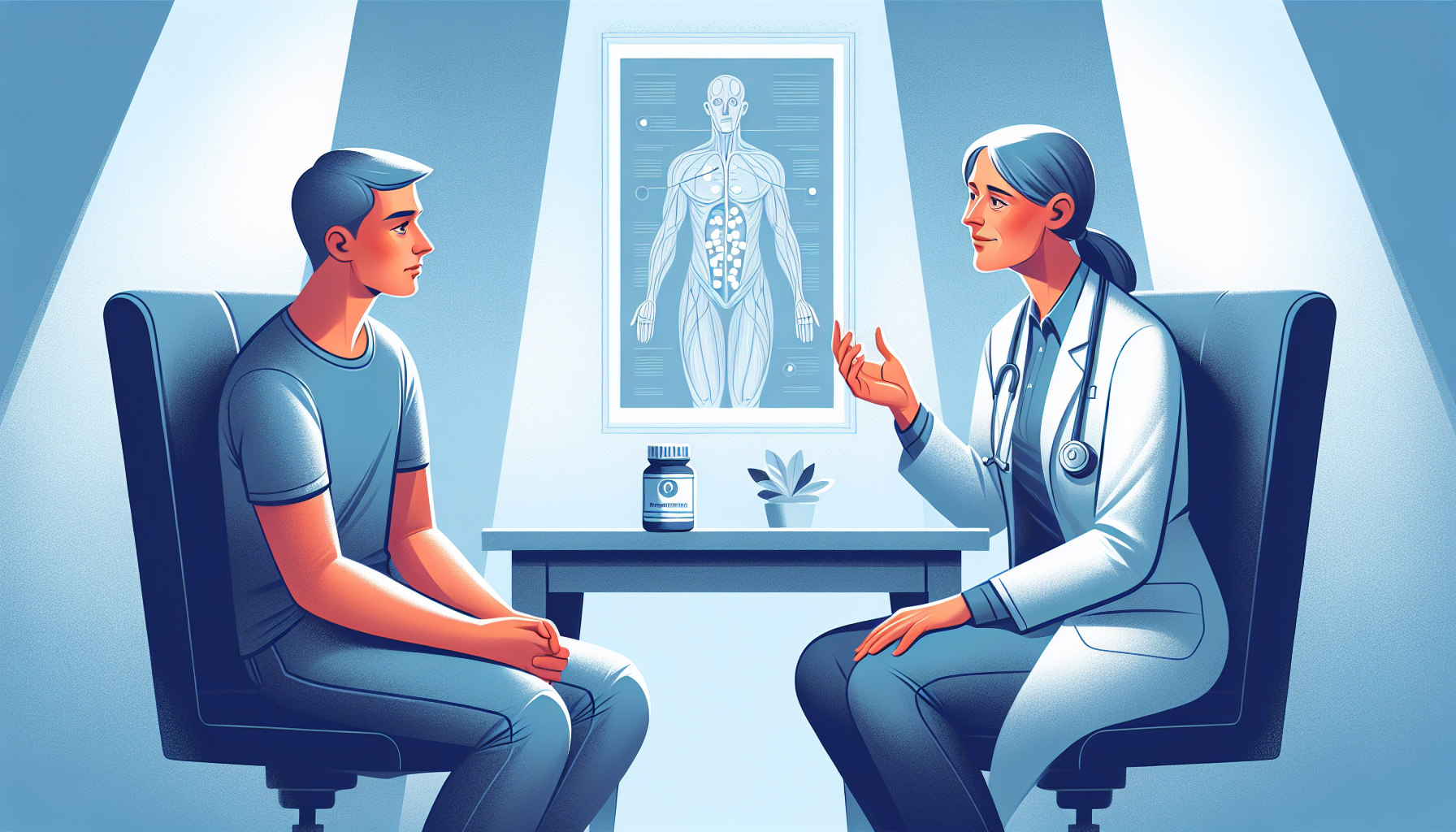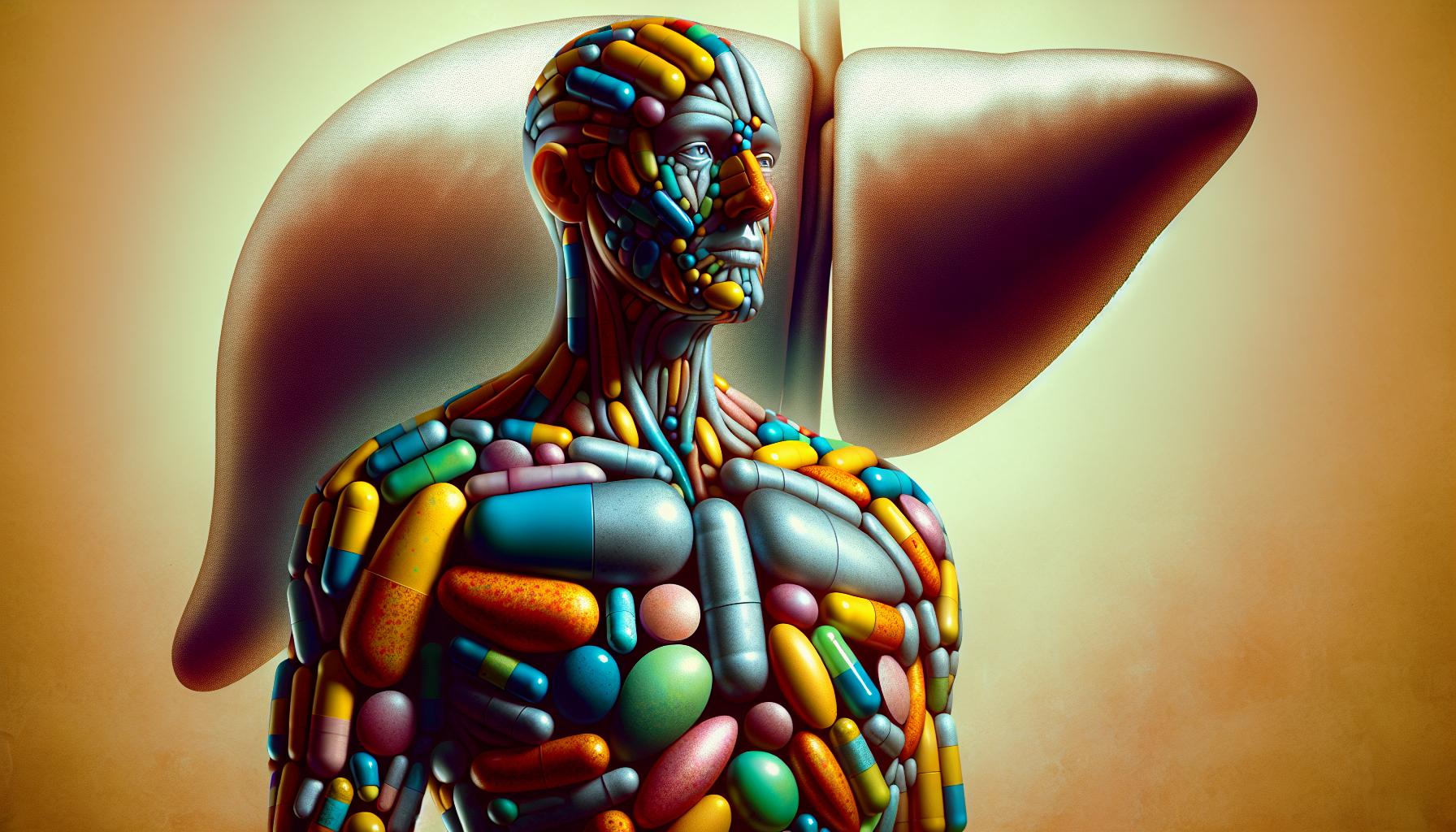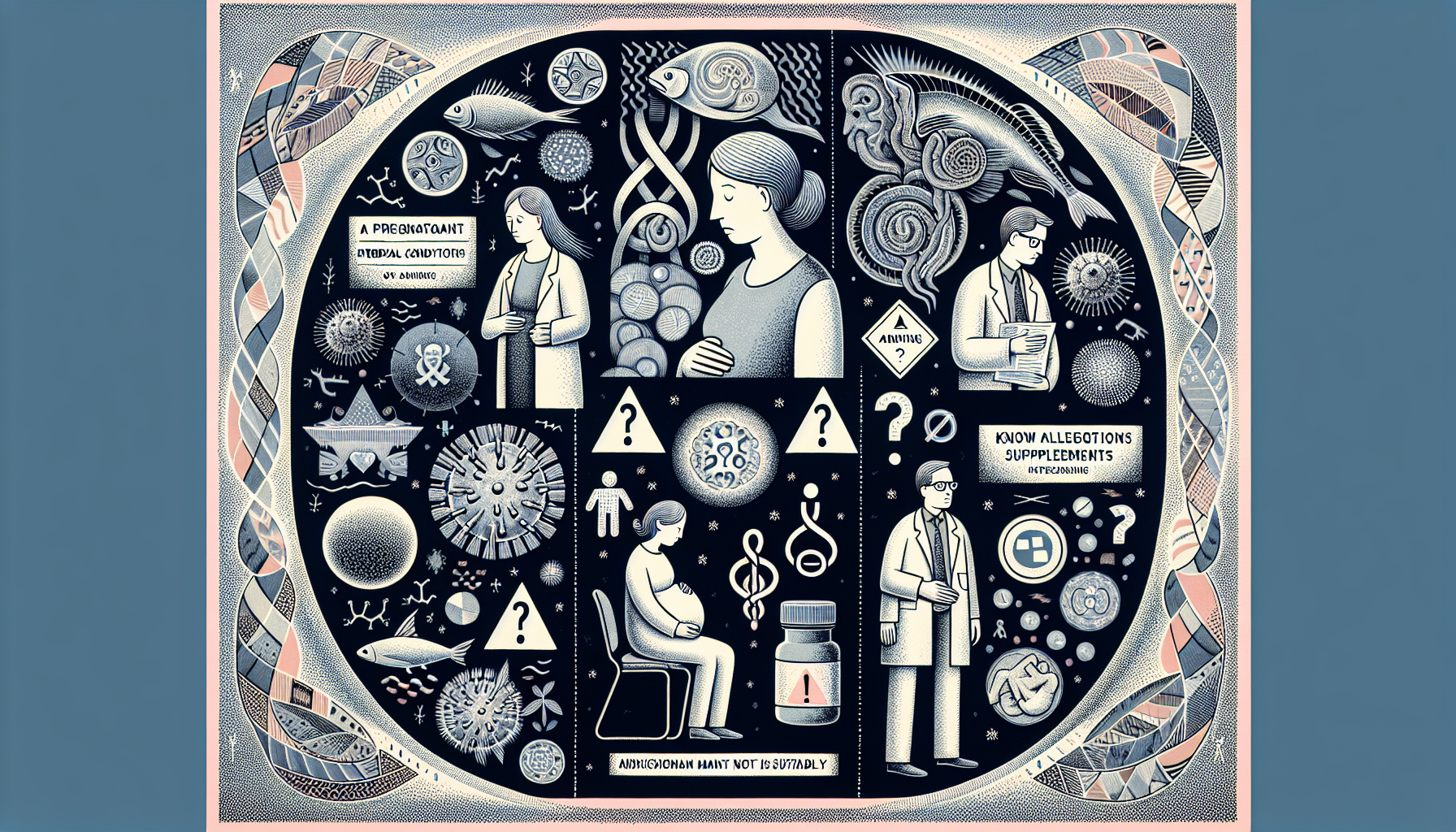In the quest to manage anxiety, many individuals are turning to the burgeoning field of natural supplements, seeking a complementary approach to traditional treatments. Anxiety disorders affect a significant portion of the U.S. population—over 30%, to be precise—prompting a surge in the popularity of dietary supplements aimed at easing anxiety symptoms. Whether you’re grappling with generalized anxiety disorder or the everyday stress that comes from a fast-paced lifestyle, understanding the best supplement for anxiety can be a game-changer. This article delves into evidence-based options ranging from Ashwagandha to Magnesium, exploring how these herbal supplements could help you reclaim mental clarity and emotional balance.
Navigating the world of natural remedies for anxiety is no small feat. With myriad options available, each promising relief, it’s crucial to discern which supplements are genuinely effective. Herbal supplements like L-theanine and Magnesium have shown promising results in clinical trials, potentially reducing anxiety symptoms and helping the body adapt to stress hormones more effectively. However, not all supplements are created equal. This article will guide you through the intricacies of choosing the right supplements for anxiety, emphasizing the importance of personalized healthcare guidance to ensure safety and efficacy. Consulting with healthcare providers is essential, especially given the risks of liver toxicity and interactions with other medications. So, let’s dive into the scientific evidence and expert recommendations to find the best paths to anxiety relief tailored just for you.
Key Takeaways
- Anxiety affects over 30% of U.S. adults. It can severely impact their quality of life, leading to the growing popularity of natural supplements for anxiety relief, which should be tailored to individual needs.
- Herbal supplements like Ashwagandha, L-Theanine, and Magnesium have shown promise against anxiety symptoms, but they should be dosed appropriately and backed by clinical research for safety and efficacy.
- Consulting healthcare providers is essential when considering natural supplements for anxiety due to potential risks such as liver toxicity, interactions with medications, and individual health conditions.
Understanding Anxiety and Its Impact on Mental Health

Anxiety, characterized by feelings of panic, fear, or uneasiness, is more common than you might think. More than 30% of adults in the U.S. will experience anxiety at some point in their lives, with 6.8 million Americans suffering from generalized anxiety disorder. Anxiety doesn’t come in one shape or size, either. There are different types of anxiety disorders, including:
- Generalized anxiety disorder is characterized by persistent worry
- Panic disorder, leading to severe panic attacks
- Social anxiety disorder, causing discomfort in social settings
And many others.
But the impact of anxiety goes beyond mere statistics. It can severely impact the quality of life, affecting everything from job performance and school work to personal relationships. For women over 50, it can lead to heightened concerns about mental health. The onset of anxiety disorders can be attributed to various factors, including chronic stress, as well as:
- genetic
- environmental
- psychological
- developmental elements
So, with anxiety being such a prevalent issue, how is it treated? One increasingly popular method is through natural supplements. But before we can understand how they help, we need to navigate the world of supplements for anxiety relief.
Navigating the World of Supplements for Anxiety Relief
Supplements for anxiety relief come in various forms. Some correct deficiencies, others support the body’s physiology, and some assist the nervous system to calm and rebalance. Doctors often recommend vitamins to tame stress naturally, along with other natural supplements. But with so many options available, how do you choose the right one?
This is where an individualized approach comes into play. Just as anxiety manifests differently in every individual, the effectiveness of supplements can vary from person to person. What works wonders for one person could have little effect on another. That’s why it’s crucial to understand your unique needs and consult a healthcare provider before beginning any new supplement regimen.
However, it’s not just about choosing between prescription and herbal supplements. The debate runs deeper, and the decision isn’t always black and white.
Expert Insights on Herbal Supplements vs. Prescription Medications
Herbal supplements are commonly used by patients with anxiety. In fact, 43% report using CAM (Complementary and Alternative Medicine) treatments, including various anxiolytic (anxiety-reducing) herbs. But why is this the case, especially when prescription medications are readily available?
Despite the availability of prescription medications, nearly half of individuals with generalized anxiety disorder may find these traditional treatments ineffective, potentially increasing reliance on CAM. Furthermore, patients who regard medications as a crucial element of anxiety treatment are less inclined to opt for CAM treatments. This indicates that the choice between herbal supplements and prescription medications often rests on individual experiences and perceived effectiveness.
Interestingly, the likelihood of continuing CAM treatments drops significantly after a patient achieves substantial symptom reduction, suggesting that the efficacy of treatment influences CAM usage. So, while herbal supplements can provide relief, it’s critical to consider their effectiveness and potential risks, particularly when used in high doses.
The Top Contenders: Effective Natural Supplements for Anxiety

Now that we’ve established a foundational understanding of anxiety and the role of supplements in its management let’s delve into the specifics. Some natural supplements have shown promise in helping manage anxiety. Among the top contenders are Ashwagandha, L-Theanine, and Magnesium.
Let’s take a closer look at them, as more research is needed.
Ashwagandha: An Ancient Herb for Modern Stress
Ashwagandha, a renowned herb in Ayurvedic medicine, is gaining recognition in modern times for its ability to:
- significantly reduce stress and anxiety levels by regulating stress hormones
- improve sleep quality
- reduce serum cortisol levels, a hormone that your body produces in response to stress
It’s not just about the anecdotal evidence, though. Clinical studies have shown that Ashwagandha extracts can also provide these benefits.
The effectiveness of Ashwagandha is dose-dependent. Research has shown that doses ranging from 500 to 600 mg per day offer more substantial stress and anxiety relief compared to lower doses. So, if you’re considering Ashwagandha for anxiety relief, ensure that you’re taking an optimal dose to reap the benefits.
To make your journey to finding the right Ashwagandha supplement easier, we've carefully reviewed and compiled a list in our article, "Five Of The Best Ashwagandha Supplements – Which One Is Right for You?" This guide highlights five top-rated Ashwagandha supplements from renowned manufacturers known for their high-quality and rigorously tested products. These options align with the efficacy criteria discussed here and stand out in the realm of herbal supplements. Whether you want to improve sleep, reduce anxiety symptoms, or lower cortisol levels, our recommended products are tailored to meet your needs. By choosing from our curated list, you can alleviate the stress of navigating the vast natural remedies market and feel more confident in your selection. Here is a link to this article.👇
But Ashwagandha isn’t the only supplement gaining attention for anxiety relief. Let’s explore another one: L-Theanine.
L-Theanine: A Calming Amino Acid
L-Theanine, a plant-based compound found in tea leaves, promotes mental clarity and calms the nervous system. People worldwide have sipped on tea for centuries to relax and unwind, unaware that L-Theanine was working its magic.
While L-Theanine is a popular ingredient in many calming teas, it’s also available in supplement form, making it a convenient option for those who don’t enjoy tea. Whether consumed as a warm, soothing cup of tea or taken as a supplement, L-Theanine can offer a natural, calming relief from anxiety symptoms.
While Ashwagandha and L-theanine have unique benefits, one more supplement merits a mention: Magnesium.
Magnesium: The Mineral for Mental Calmness
Magnesium, often termed the ‘relaxation mineral,' has a crucial role in brain function and has implications for reducing anxiety symptoms. Not only is it involved in important molecular functions linked to anxiety-related disorders, but research has also found that a combination of magnesium and vitamin B6 provided significant relief from premenstrual anxiety.
But the benefits of magnesium aren’t limited to premenstrual anxiety. The interaction of magnesium with other vitamins, especially vitamin B6, is significant in the context of mental calmness and anxiety management. As such, consuming magnesium with other vitamins could potentially enhance its benefits.
Some vitamins that work well with magnesium include:
- Vitamin B6
- Vitamin D
- Vitamin C
- Vitamin E
By incorporating these vitamins into your diet with magnesium, you may experience even greater benefits for your mental well-being.
While these supplements can offer relief from anxiety symptoms, it’s important to remember that safety should always come first.
Safety First: The Importance of Consulting Healthcare Providers

Before you rush out to buy these supplements, there’s an important step you shouldn’t skip: consulting with a healthcare provider. While supplements can help reduce anxiety symptoms, they’re not without potential risks. And these risks can be exacerbated if you’re taking other medications or have a pre-existing health condition.
Working with healthcare professionals, such as integrative medicine physicians or registered dietitian nutritionists, can help determine which supplements are appropriate for your needs. They can also advise you on the correct dosage and potential side effects.
Reviewing and discussing new supplements with a medical practitioner is crucial to ensure awareness of potential side effects and harmful interactions with other medications. So, before you add any supplement to your diet for anxiety relief, make sure to consult with a healthcare provider.
The Role of Clinical Trials and Research in Supplement Efficacy
Clinical trials and research play a crucial role in determining the efficacy of supplements. They offer a fair and unbiased evaluation of a supplement’s effectiveness in reducing anxiety levels. And while anecdotal evidence can provide some insight, nothing beats scientific research when it comes to understanding the true potential of a supplement.
Studies have found supplements, including passionflower and magnesium-containing ones, to be effective in treating anxiety disorders with the correct dosing and duration. However, current research faces challenges such as small study sizes, conflicting results, and limited evidence in areas such as the role of magnesium in anxiety. This highlights the need for more comprehensive trials.
It’s also important to note that the variability in self-reported measurement tools for health outcomes like anxiety and sleep quality can introduce bias. Therefore, improving research methods and considering these findings for future clinical guidelines is crucial.
Balancing Act: Combining Dietary Supplements with Other Treatments
While supplements can be beneficial in managing anxiety, they’re often most effective when used in conjunction with other treatments. A holistic approach to anxiety management, incorporating lifestyle changes, talk therapy, and supplementation, is typically recommended for efficacy.
Many individuals with moderate mental distress, including anxiety, seek out complementary and alternative medicine as part of their treatment strategy. This often includes dietary supplements. However, they should be used wisely and with a clear understanding of the associated benefits and risks for short-term relief in mild to moderate anxiety cases.
Personalized healthcare strategies that include careful selection and use of dietary supplements can help optimize the benefits and minimize the risks in treating anxiety. But like any treatment, supplements also come with potential risks.
Potential Risks: High Doses and Liver Toxicity Concerns

While supplements can offer relief from anxiety, they’re not without potential risks. One significant concern is liver toxicity, particularly with herbal and dietary supplements. Approximately 10% of drug-induced liver injury cases are attributed to dietary supplements, with diagnosis often based on the history of supplement use and onset timing.
Certain herbal supplements are linked to specific liver injuries. For example, sinusoidal obstruction syndrome is caused by pyrrolizidine alkaloids (alkaloids produced by plants as a defense against insects). Additionally, some supplements, like St. John’s Wort and kava, present high risks of liver toxicity. St. John’s Wort can interact with conventional anxiety medications, while kava has been directly associated with hepatotoxicity.
Due to these potentially severe side effects, adherence to recommended supplement dosages is of utmost importance, especially as supplements are not regulated by the FDA. But the discussion on supplements doesn’t end here. Let’s move beyond single supplements and look at integrative health approaches.
Beyond Single Supplements: Integrative Health Approaches
Integrative health approaches for anxiety disorders incorporate conventional treatments like therapy and medications along with complementary tools, including:
- Nutrition
- Herbs
- Supplements
- Mind-body practices
These holistic approaches aim to treat not just the symptoms of anxiety but the root cause, providing a comprehensive treatment strategy.
Modalities such as acupuncture, meditation, yoga, and biofeedback are often utilized alongside traditional treatments in complementary and integrative health to support mental health and address anxiety disorders. Research shows that patients with two or more chronic medical conditions are 1.94 times more likely to use alternative treatments, such as complementary and alternative medicine (CAM), as part of their integrative health approach to anxiety.
While supplements and integrative health approaches offer a myriad of options for treating anxiety, it’s also crucial to consider the role of diet in anxiety management.
The Intersection of Diet and Anxiety: Food Sources of Helpful Nutrients
The saying “you are what you eat” holds, especially when it comes to mental health. Nutrition is increasingly being recognized as a significant factor in mental health, particularly in the context of anxiety. But how exactly does diet intersect with anxiety?
Certain nutrients have been linked to lower anxiety levels. Some of these include:
- Magnesium, found in leafy greens, legumes, nuts, seeds, and whole grains, gives a sense of calm.
- Dietary zinc from cashews, beef, and egg yolks has been associated with lower anxiety.
- Omega-3 fatty acids in fatty fish, walnuts, ground flaxseed, canola, and olive oil may help reduce anxiety.
- B vitamins in avocados, almonds, and fortified whole grains support neurotransmitter release for a ‘feel-good’ effect.
Additionally, foods high in antioxidants, like:
- dried beans
- certain fruits
- nuts
- vegetables
might ease the symptoms of anxiety disorders. Probiotics can aid in producing gamma-aminobutyric acid (GABA), which has a calming effect, and their consumption is suggested to ease anxiety symptoms. But while diet plays a crucial role in managing anxiety, it’s also important to ensure the quality of supplements.
Finding Quality: Third-Party Testing and Supplement Transparency
Third-party testing by independent laboratories offers an unbiased assessment of dietary supplements, which is critical for ensuring a reliable evaluation of the products. These tests can increase consumer confidence, as certifications and seals from independent testers indicate a product’s reliability.
Incorporating third-party testing results into marketing strategies can enhance brand transparency and elevate consumer trust. However, it’s important to remember that herbal supplements can be complex mixtures and may contain contaminants like:
- Heavy metals
- Pharmaceuticals
- Microbial products
- Pesticides
These contaminants can contribute to liver toxicity.
The quality and strength of herbal supplement ingredients can vary, influencing toxicity, depending on the harvest time and conditions and the part of the plant used. This emphasizes the importance of third-party testing and supplement transparency for consumer confidence. But there are times when it’s best to skip supplements.
When to Skip Supplements: Medical Conditions and Anxiety

Certain medical conditions and situations may warrant caution or avoidance of supplements. For instance, St. John’s wort can potentially cause serotonin syndrome when taken with SSRIs and may decrease the effectiveness of medications such as birth control and those for chronic conditions.
Using sedative supplements like valerian root and kava can be risky for individuals on benzodiazepines or other sedating medications due to the possibility of enhanced sedative effects. Individuals with heart disease or those on blood thinners should exercise caution with supplements like chamomile, which possess blood-thinning properties and could exacerbate bleeding risks.
While supplements can provide relief from anxiety, it’s crucial to consider all potential risks and consult with a healthcare provider, especially when dealing with pre-existing medical conditions or medications.
Some Final Thoughts on Supplements For Anxiety
Supplements such as Ashwagandha, L-theanine, and Magnesium have emerged as powerful allies in the management of anxiety, offering natural relief to those navigating the complexities of mental health conditions. While these herbal supplements are lauded for their ability to moderate stress hormones, improve cognitive function, and enhance sleep quality, it's essential to recognize that they are part of a broader, integrative health approach. Complementing prescription medications and talk therapy, these natural remedies serve to reduce anxiety symptoms and support overall mental clarity. However, the effectiveness of such treatments is often dependent on rigorous pharmacological research and adherence to recommended dosages, underscoring the need for ongoing scientific investigation.
Navigating the landscape of dietary supplements for anxiety can be daunting yet rewarding, promising a more balanced life for those affected by anxiety disorders. It’s crucial, however, to consult healthcare providers to tailor a holistic treatment plan that safely integrates these supplements with other medications and therapies. This balanced approach aims not only to ease anxiety but also to minimize potential risks, such as liver toxicity and interactions with other treatments. Ultimately, the journey toward managing anxiety with supplements is about finding equilibrium—between natural and conventional treatments and between the challenges of anxiety and the pursuit of a peaceful, more fulfilling life.
Wrapping Up, Here Are Some Answers To FAQs
What are some effective natural supplements for anxiety?
Consider trying Ashwagandha, L-theanine, and Magnesium as natural supplements for anxiety relief. These can help manage anxiety effectively.
What is the importance of consulting a healthcare provider before starting any supplement regimen?
It is important to consult with a healthcare provider before starting any supplement regimen to understand potential side effects and harmful interactions with medications and receive advice on the correct dosage. It can help ensure your safety and well-being.
How do clinical trials and research determine the efficacy of supplements?
Clinical trials and research provide scientific evidence to support the effectiveness of supplements in reducing anxiety levels, offering a fair and unbiased evaluation of their efficacy.
What role does diet play in managing anxiety?
In managing anxiety, diet plays a crucial role by providing nutrients like magnesium and zinc, which are known to lower anxiety levels. Emphasizing these nutrients in your diet can contribute to a sense of calm and reduced anxiety.
Why is third-party testing and supplement transparency important?
Third-party testing and supplement transparency are important because they provide unbiased assessment of dietary supplements, increasing consumer confidence and trust in the products.
Thanks for taking this journey with us to explore the best supplement for anxiety. If you want to add to your library of knowledge, you should check out the other article mentioned and linked above. You won't be sorry you looked because adding to your knowledge arsenal never hurts!
Also, please return soon to check out our next review of another incredible supplement – we’re always looking out for YOU!
*We are NOT qualified medical advisors. The content here is only based on our personal opinions and research and should NOT be used as a substitute for a healthcare professional's advice!











Member discussion